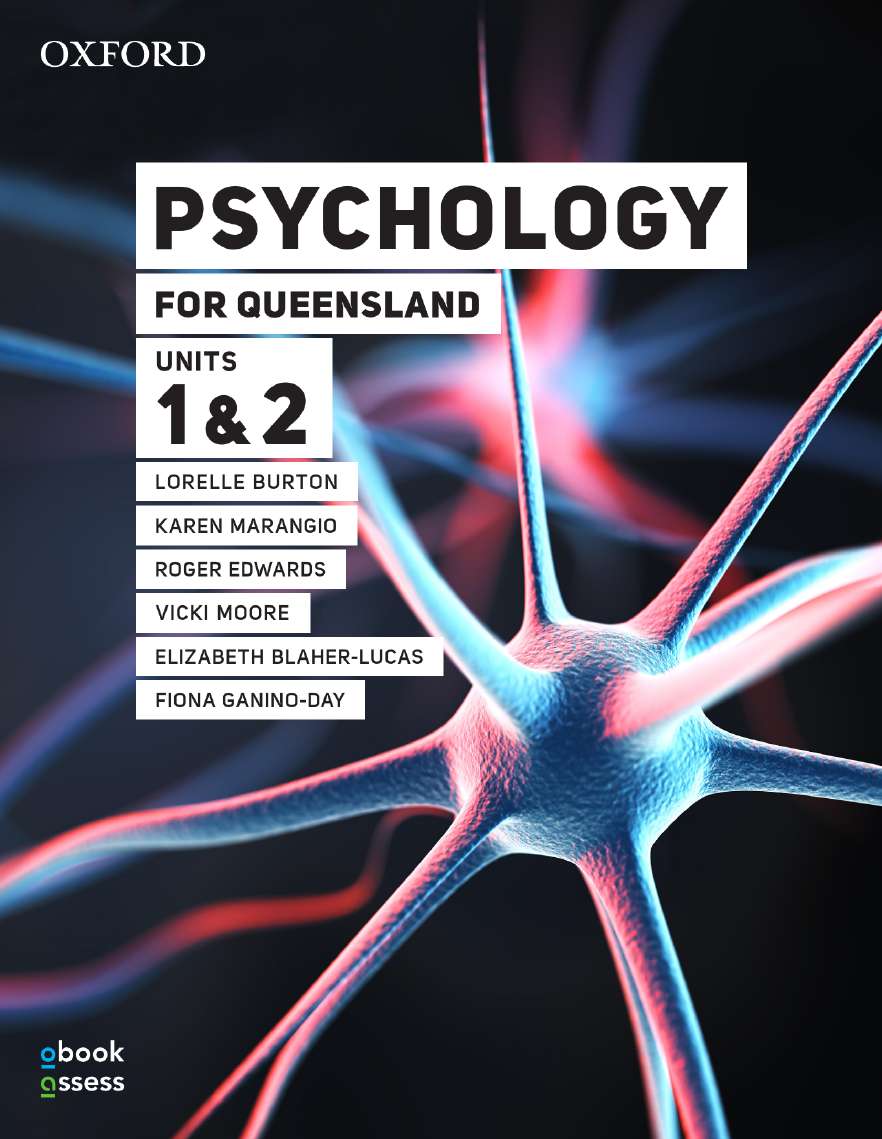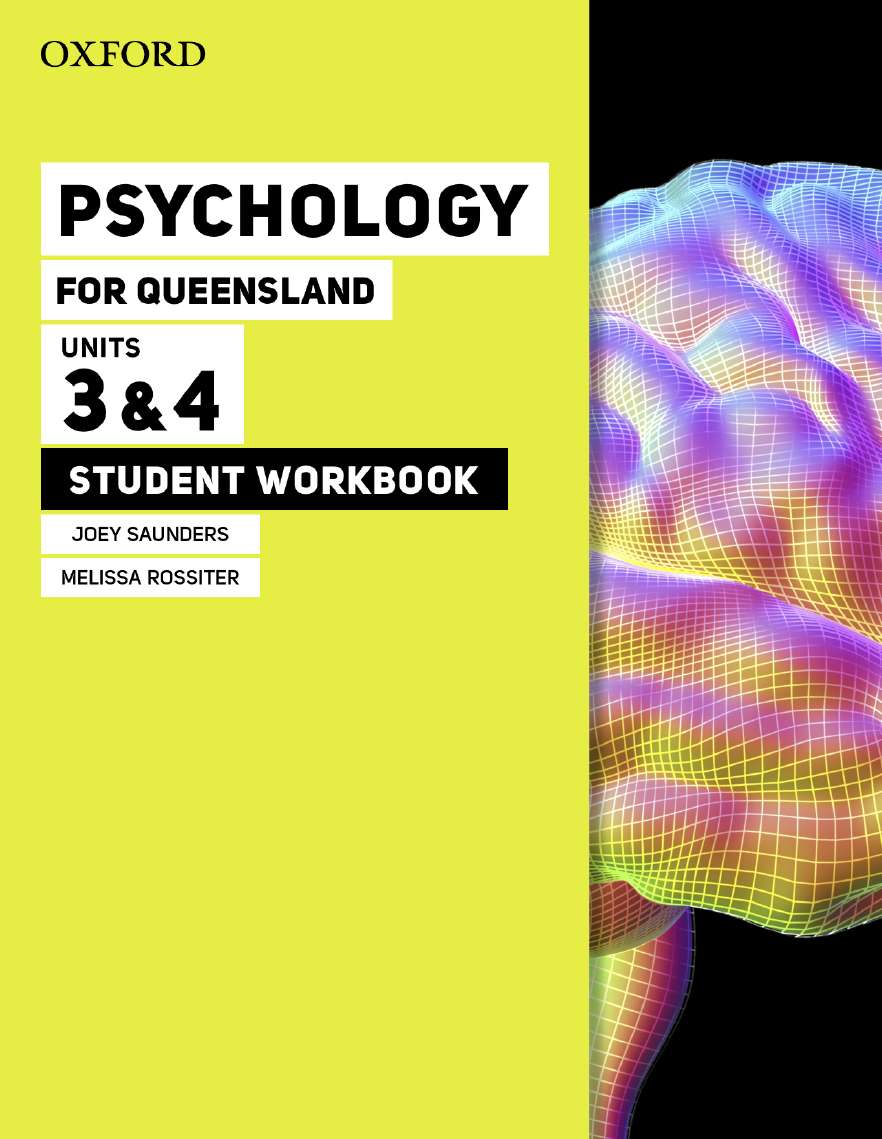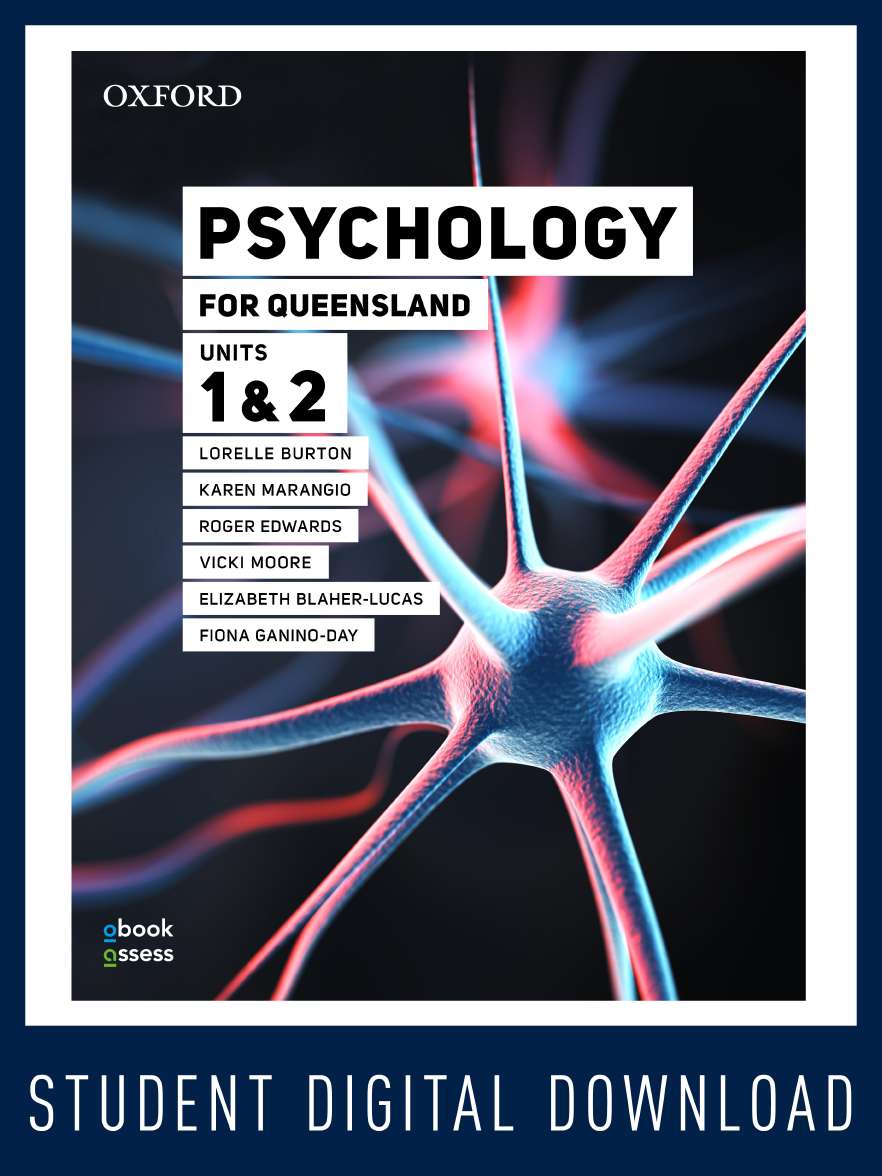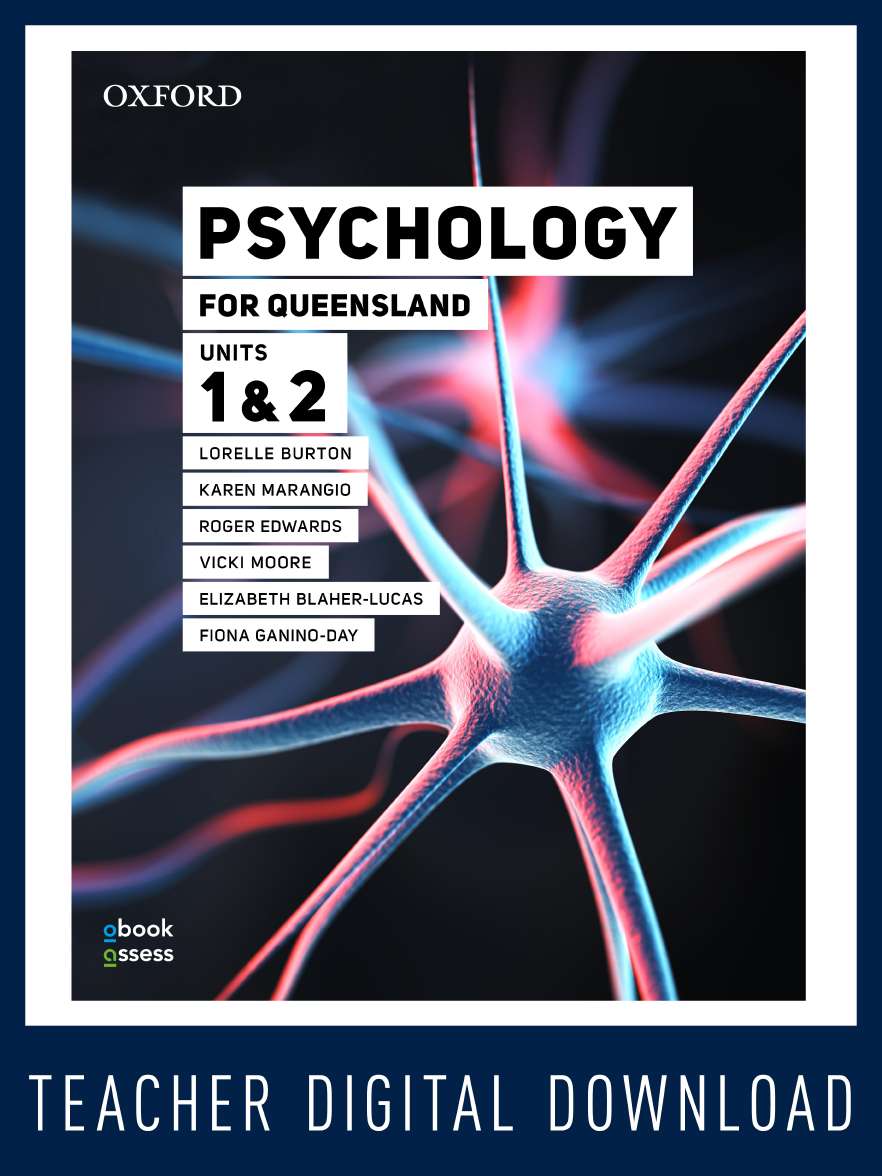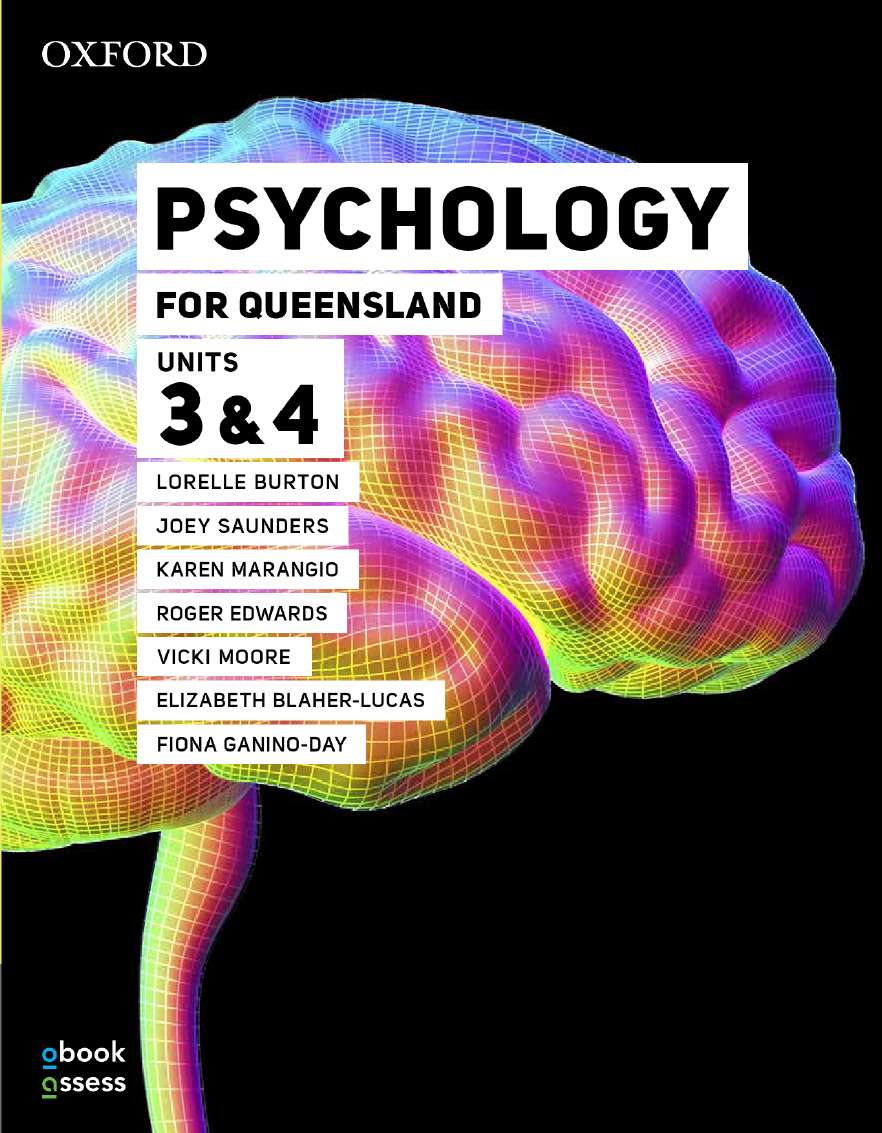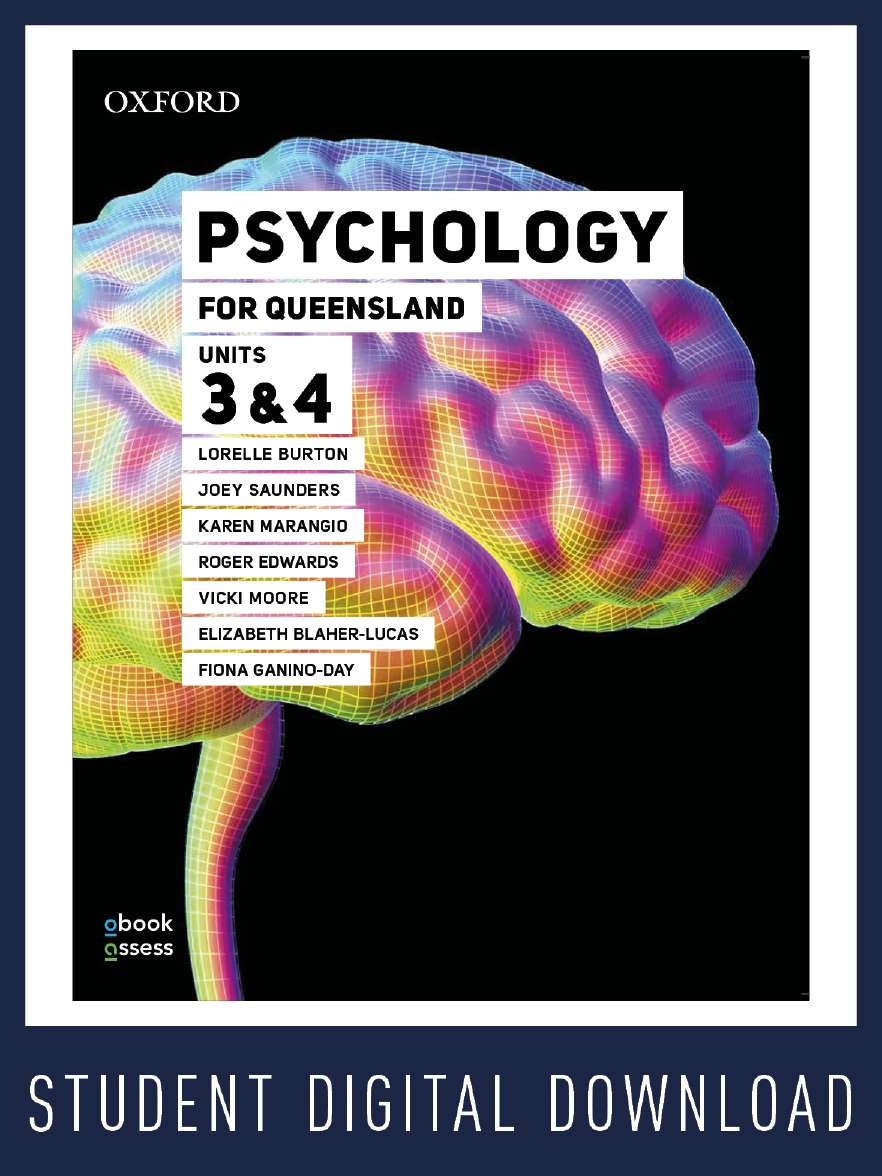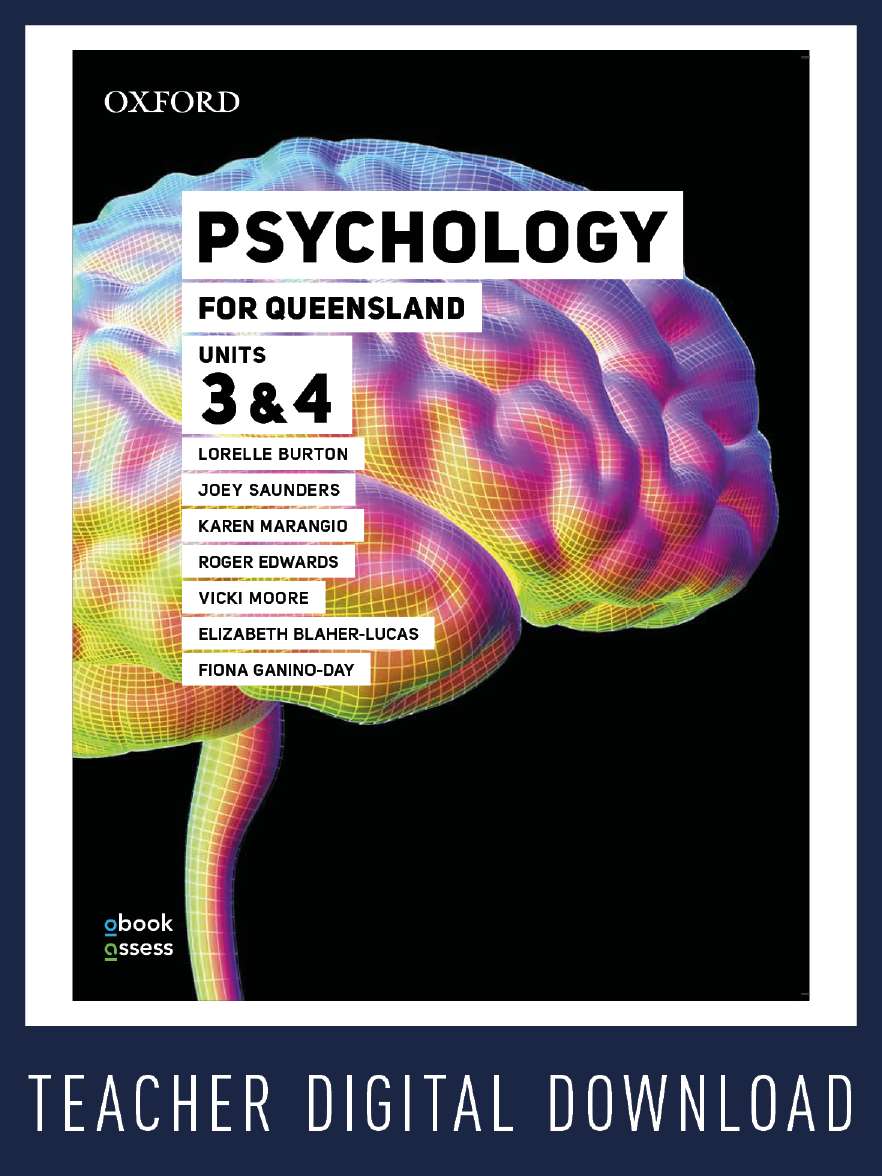Psychology for Queensland Units 1&2 Student workbook
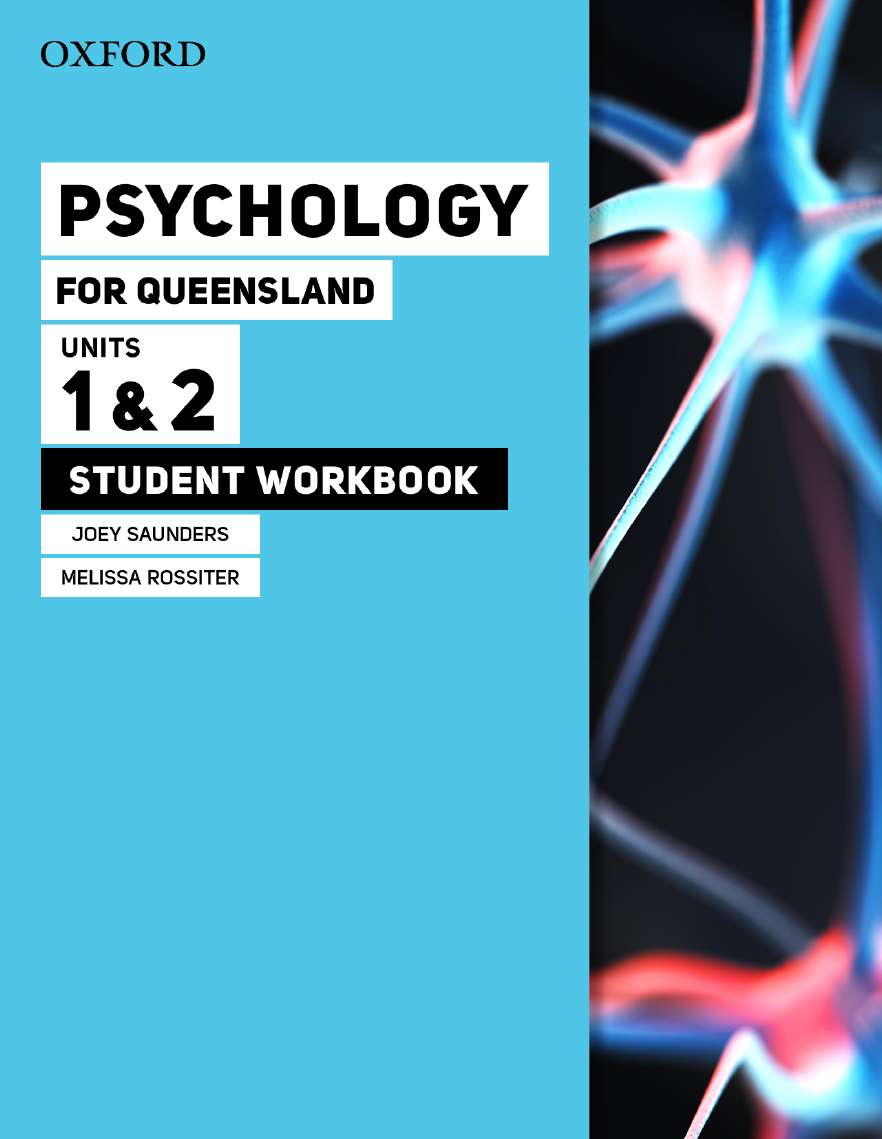
Psychology for Queensland Units 1&2 Student workbook
|
ISBN: |
9780190320386 |
|
Binding: |
Paperback |
|
Published: |
21 Jan 2020 |
|
Availability: |
252
|
|
Series: |
$29.95 AUD
$34.99 NZD
Add To CartDescription
Psychology is offered as a Senior Science subject in Queensland for the first time from 2019.
The new syllabus is designed to help develop the 21st-century skills and knowledge students need for success in their future work and life.
As EPAA Secondary Publisher of the Year 2017, 2018 and 2019, Oxford University Press is committed to helping teachers and students in Queensland reach their full potential.
Psychology for Queensland Student workbooks are standalone resources designed to help students succeed in their internal and external assessments. With an engaging design, full-colour photos and relevant diagrams throughout, the Student workbooks include:
- a Toolkit chapter focused on internal assessments and cognitive verbs
- Data drill activities that help students develop the key skills in analysis and interpretation required for the Data test
- Experiment explorer activities that support the modification of a practical as required in the Student experiment
- Research review activities that allow students to practise how to evaluate a claim and identify credible sources for the Research investigation
- Exam excellence activities that allow students to practice multiple choice and short answer questions in preparation for the external examination
- handy study tips throughout the chapters
- practice internal assessments for the Data test, Student experiment and Research investigation
- write-in worksheets for all mandatory and suggested practicals
- answers to all activities and practice assessments.
Contents
Chapter 1 The psychology toolkit
Responding to cognitive verbs
Data test
Data drill 1: Calculations
Student experiment
Experiment explorer 1: Designing an experiment or other type of research
Research investigation
Research review 1
UNIT 1: INDIVIDUAL DEVELOPMENT
Chapter 2 Philosophy to psychology
Data drill 2: p-value
Experiment explorer 2: Design and accuracy
Research review 2: Research skills
Exam excellence 2
Chapter 3 Brain investigations
Data drill 3: Variability
Experiment explorer 3: Research design and hypotheses
Research review 3: Linking a research question to the claim.
Exam excellence 3
Chapter 4 The nervous system
Data drill 4: Correlation design
Experiment explorer 4: Design considerations
Research review 4: Credibility of resources
Exam excellence 4
Chapter 5 The brain
Data drill 5: Inferential statistics
Experiment explorer 5: Data representations
Research review 5: Referencing resources
Exam excellence 5
Chapter 6 Developing and malfunctioning brains
Data drill 6: Confidence intervals
Experiment explorer 6: Modification
Research review 6: Credibility
Exam excellence 6
Chapter 7 Genetic-environment interactions on psychological development
Data drill 7: Qualitative data
Experiment explorer 7: Application of statistics
Research review 7: Summarising research
Exam excellence 7
Chapter 8 Emotional and cognitive development
Data drill 8: Longitudinal studies
Experiment explorer 8: Calculating inferential statistics
Research review 8: Reliability and validity
Exam excellence 8
Chapter 9 States of consciousness
Data drill 9: Variability
Experiment explorer 9: Considering ethics
Research review 9: Structuring your report
Exam excellence 9
Chapter 10 Measuring states of consciousness
Data drill 10: What test has been used?
Experiment explorer 10: Possible errors
Research review 10: Writing an introduction
Exam excellence 10
Chapter 11 Purpose and function of sleep
Data drill 11: Calculating the mean
Experiment explorer 11: Creating a hypothesis
Research review 11: Condensing information
Exam excellence 11
Chapter 12 Sleep deprivation
Data drill 12: Interpreting data sets
Experiment explorer 12: Modifying an experiment to correct limitations
Research review 12: Journal articles
Exam excellence 12
Chapter 13 Sleep disorders
Data drill 13: Drawing conclusions from data
Experiment explorer 13: Case studies
Research review 13: Identifying key terms
Exam excellence 13
Unit 1: Practice assessment
Unit 1 Data test
Unit 1 Student experiment
Unit 1 Research investigation
UNIT 2: THE INFLUENCE OF OTHERS
Chapter 14 Understanding intelligence and factors that influence it
Data drill 14: Measures of variability
Experiment explorer 14: Experimental ethics
Research review 14: Reading an abstract
Exam excellence 14
Chapter 15 Approaches to describing and measuring intelligence
Data drill 15: Interpreting data
Experiment explorer 15: Experimental design
Research review 15: Source credibility
Exam excellence 15
Chapter 16 Understanding the concepts of normality and mental illness
Data drill 16: Strength of relationship
Experiment explorer 16: Ethical cost-benefit
Research review 16: How to choose a claim
Exam excellence 16
Chapter 17 Recognising psychological disorders
Data drill 17: Interpreting graphs
Experiment explorer 17: Participants and sampling
Research review 17: Understanding a claim
Exam excellence 17
Chapter 18 Risk factors and treatment of psychological disorders
Data drill 18: Drawing conclusions
Experiment explorer 18: Extraneous variables
Research review 18: Conducting research
Exam excellence 18
Chapter 19 Emotion, cognition and wellbeing
Data drill 19: Standard deviation
Experiment explorer 19: Generalising a study
Research review 19: Evaluating methodology
Exam excellence 19
Chapter 20 Motivation
Data drill 20: Pie charts
Experiment explorer 20: Modifying experiments
Research review 20: Referencing
Exam excellence 20
Unit 2: Assessment
Unit 2 Research Investigation
Chapter 21 Practical manual
Suggested practical: Correlational investigation: technology and cognitive development
Suggested practical: Replication of Fergus Craig et al. (1996)
Mandatory practical: Factors that influence sleep
Suggested practical: Cultural differences in diagnoses of abnormal behaviours
Mandatory practical: Can your emotions be influenced?
Answers
Authors
Joey Saunders
Joey Saunders has taught Psychology across VCE and IB extensively and was an expert writing team member in the QCAA Psychology syllabus development. Joey is currently Senior Science Psychology Teacher and Acting head of house at Ipswich Girls Grammar School.
Melissa Rossiter
Melissa Rossiter has taught Psychology for the past 20 years. She is a senior examiner for the IB and was an expert writing team member in the QCAA Psychology syllabus development. Melissa is currently teaching at St Peters Lutheran college where she is the coordinator of Psychology and the extended essay.
